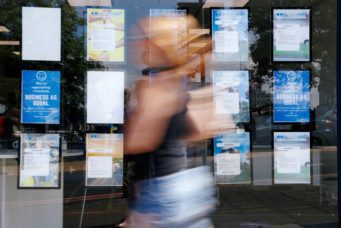After Battles Come Syria’s Economic Choices
The political opposition has estimated rebuilding costs at about $60 billion, but they have yet to specify exactly how and where the money will be spent.
Despite economic grievances being at the core of the Syrian uprising, discussion about the future of that country’s economy are largely absent from the debates of the organized political opposition. This has been a missed opportunity as the corruption and monopolization of wealth in the past decade is an issue that resonates with many Syrians regardless of political allegiances. The political opposition has estimated rebuilding costs at about $60 billion, but they have yet to specify exactly how and where the money will be spent. So far, they have failed to address the issue of economic reconstruction in a clear and integrated manner—a debate that would define the character and future of Syria.
Although the conflict still rages on, a discussion of economic reconstruction is necessary not least because all Syrians will have to shoulder the costs in one way or another. As the opposition considers various post-conflict scenarios, one thing must be kept in mind: in order to gain legitimacy in the eyes of the population, the politics of post-conflict reconstruction must be transparent to accurately survey the uneven levels of damage across the country. This process must also take into account in an inclusive way the new local economies and regional networks that have emerged in the past two years as a means of survival—regardless of political, religious, or ethnic identities.
This is not to say there has been no mention of economic challenges; the main way in which economic issues are entering discussions around the Syrian crisis is through plans for humanitarian relief and reconstruction. These have ranged from informal initiatives to “day after” projects sponsored by European and North American institutions. While these initiatives are important, they are often treated by the opposition as ready-made technical formulas to be implemented at the appropriate time and viewed in a separate sphere than messy political debates. However, economic reconstruction and long-term development are socio-economic challenges that are just as contentious as the political discussions and require open deliberation and discussion.
Such deliberations are crucial for several reasons. The long-term goal should be building and sustaining a democratic, stable, and legitimate state—long after aid money has dwindled and development agencies have left. One way to work towards this goal is to model the type of behavior necessary in a future state, and open a deliberative process of airing grievances, disputes, and contrasting visions. Excluding a crucial factor—the economy—from this debate reinforces the notion that economic knowledge should be monopolized by a small group of experts who, however well-intentioned, do not have any form of popular mandate and are ultimately unaccountable. The last twenty years of post-conflict reconstruction has also demonstrated the need for this holistic approach. Ever since Alvaro de Soto and Graciana del Castillo’s seminal 1994 Foreign Policy article highlighted the pitfalls of uncoordinated paths of peace building in El Salvador, we have become aware of the need for an integrated approach to development in which “political, economic, social, environmental, and security/military problems should be addressed jointly and coherently.”
The lack of debate on economic issues so far, however, means that an examination of emerging political forces’ economic inclinations would serve as a potential indicator for what is to come. The influence of the Muslim Brotherhood is on the rise in Syria and elsewhere in the region, and while there is no reason to believe homogeneity within political Islamic movements, they seem to share similar economic visions—whether the Justice and Development Party (AKP) in Turkey or Egypt’s Muslim Brotherhood. The recent record of the political Islamist movements shows that they seem to have embraced a free market fundamentalism; in other words, such movements seem to be embracing the very policies that led to the inequalities, marginalization, and social cleavages which directly fueled regional uprisings in general—and Syria particularly. Their approach is often couched in terms that, at first sight, may be appealing—for example, the glorification of civil society and criticism of the long arm of the state—and resonate with many people seeking to escape authoritarian and repressive regimes. If these policies are adopted in post-conflict Syria, they are likely to exacerbate (rather than mitigate) the social and geographic cleavages that fueled the uprising—and will ultimately weaken state institutions at a time when rebuilding confidence in the state is sorely needed.
Regardless of the terminology chosen to describe what is taking place in Syria, the challenges of reconstruction appear to be most comparable to other countries that have seen the violence of civil war. Since the early 1990s, we have come to realize that the success of lasting transitional peace in post-civil conflict countries rests on building state capacity rather slashing or gutting the state. This is crucial because Syria’s government must be able to sustainably fund democratic institutions, social programs, and public investments that promote growth and development. Inflows of aid diminish over time and therefore cannot substitute for this process. Moreover, state capacity is key to bestowing legitimacy in a way that democratic elections—in and of themselves—are not. Legitimacy comes from delivering on social services and programs demanded and needed by the population. The volume of domestic revenue limits what the state can do, but the capacity of the state to mobilize domestic resources, including taxation, depends on citizens’ perceptions of whether or not the state is capable of delivering services and economic development. This interdependence can create either virtuous or vicious cycles on which a successful transition hinges.
Omar Dahi is assistant professor of economics at Hampshire College.
This article is reprinted with permission from Sada. It can be accessed online at:
http://carnegieendowment.org/sada/2012/12/11/after-battles-come-syria-s-economic-choices/esqj
Subscribe to Our Newsletter



